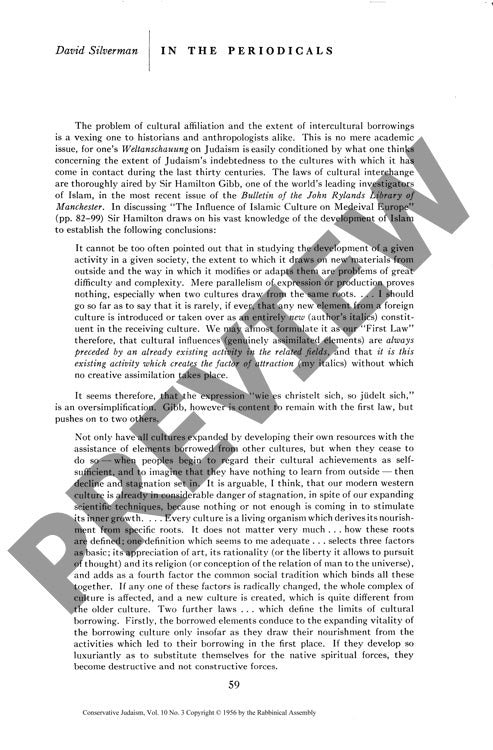In the Periodicals
Couldn't load pickup availability
Cultural borrowing follows distinct patterns - while scientific knowledge travels freely across civilizations, religious and philosophical ideas face complex barriers shaped by societies' core values. Through analysis of Judaism's historical interactions with neighboring cultures, Sir Hamilton Gibb's theoretical framework reveals three fundamental principles governing intercultural exchange: societies only adopt external elements when primed by related internal developments; cultural growth requires both indigenous evolution and selective borrowing; and living cultures actively reject foreign elements that contradict their essential beliefs and aesthetic sensibilities. Drawing on recent scholarship, including the Albright-Irwin debate on Canaanite versus Babylonian influences in Hebrew literature, contemporary Dead Sea Scrolls interpretation, and S.D. Goitein's etymological investigation of YHWH, this research examines the mechanisms of cultural transmission and resistance. The findings demonstrate that cultural borrowing operates through careful filtration processes, with societies maintaining distinctive characteristics even while engaging in extensive exchange. Understanding these dynamics requires thorough analysis of both host and source cultures' fundamental values, moving beyond simplistic models of cultural influence to recognize the deeply selective nature of intercultural adaptation.

More Information
-
Physical Description
-
Publication Information
Published 1956
ISBN
-
Publication Credits
David Silverman

